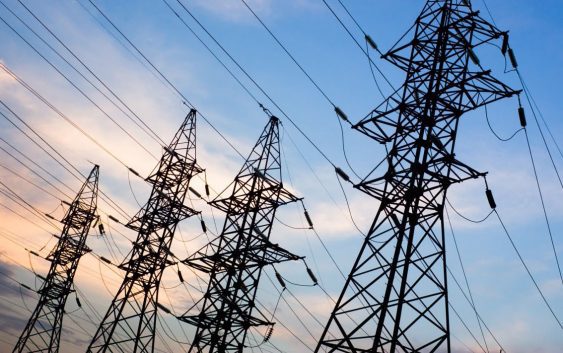As federal energy minister Josh Frydenberg raised eyebrows for downplaying renewables and talking up gas at a conference in Canberra, a new report has highlighted how a change in energy market rules could encourage more battery and other storage devices and help reduce wholesale energy prices.

Frydenberg was heckled during a speech at the ANU Energy Change Institute for saying that more gas was needed to cope with the rise of “intermittent” wind and solar and help keep Australia’s energy system “secure, reliable and affordable.”
Crowd visibly disappointed @JoshFrydenberg claiming the answer to Australia’s climate change goals is more gas #Auspol #EnergyUpdate
— Pat Simons (@prrsimons) November 28, 2016
The comments follow an opinion piece Frydenberg authored in the Murdoch media on Monday, when he described the Labor Party’s 50 per cent renewable energy target for 2030 as a “lurch to the left” that already caused the “loss of jobs, less investment and higher electricity prices.” (Even though said policy has not been introduced).
Energy experts point out that Australia’s high electricity prices and the experience in South Australia show that Australia has so far failed in providing secure and affordable electricity.
But while the Coalition and the fossil fuel lobby has tried to use the blackout in South Australia as an excuse to go slow on renewables and abolish state-based targets, others are pushing for a rethink about the electricity market rules and operations so the grid can embrace 21st technology and practices.
One of the key issues is the current system of settlement periods in the wholesale electricity market. Generation is dispatched and priced every 5 minutes, but the market is only “settled” every 30 minutes.
The Australian Energy Regulator and large energy users have argued that this distorts the energy market, allowing for the market to be “gamed” by fossil fuel generators, who might push the price to the market cap for one five minute period, knowing that the benefits will flow.
There have been numerous examples of this “gaming” of the system in both South Australia and Queensland, where the markets rely heavily on gas for the marginal price of generation, and which have the fewest competitors.
Proponents for the rule change argue that if the price was settled every 5 minutes, then the distortions will be removed and fast-reponse technologies such as battery storage could be encouraged, leading to a smarter, cleaner and more secure grid.
This argument has been underpinned by a new study by the Melbourne Energy Institute’s Dylan McConnell, who argues that a 5 minute settlement period is critical to unlock the “full value” of battery and other storage, and will reduce the cost of “caps contracts” by around one third.
One of the criticisms of the 30 minute settlement periods, apart from the gaming, is that it is designed to advantage slow-response peaking gas plants, but does not favour instant-response technologies such as battery storage.
McConnell’s analysis and modelling shows that with a 5-minute settlement period, the potential revenue for battery storage installations could rise more than five-fold to around $617/hour for every kW of capacity, and twice that much on days of high volatility.
This would provide the revenue certainty to encourage battery storage installations to be built. Battery storage could also provide other network security services that could help keep the lights on if grids such as South Australia’s were battered by another super-storm with winds of up to 260km/h.
McConnell’s analysis also looks at the impact of “cap contracts”, a favoured hedging tool used in wholesale markets.
Basically, retailers agree to pay peaking generators a “fixed fee” – of say $10/MWh (in NSW and Victoria, or up to $45/MWh in South Australia) for every trading interval for the year – in return for being “reimbursed” for sharp price spikes (above $300/MWh).
Those cap contracts are the currency that keeps the peaking plants in business, and McConnell says battery storage will need the same. But even though the technology is comparable now to peaking gas plants, under the 30-minute pricing system it would not be able to provide a discount.
Under the 5-minute settlement rule, however, and with battery storage, McConnell’s modelling shows that cap contract pricing could fall by up to 30 per cent. That will have benefits to wholesale prices that will flow through to all consumers.
Fossil fuel generators, particularly those such as ERM and Snowy Hydro who have made recent investments in peaking power plants, have argued strongly against the 5-minute proposal, saying that it could put their units out of business.
The Australian Energy Market Commission, which must decide on the rule change, had been thought ready to ditch the idea. But strong lobbying, and a push by COAG energy ministers for the AEMC to “catch up” with the dramatic technology changes taking place around it, saw it put the matter back on the agenda.
The AEMC is due to conduct a workshop on the issue later this week, and will make a decision next year. Energy users and technology developers say it is one of a number of rulings that are essential if Australia is to push ahead with renewables and not find itself relying on expensive, dirty and slow-responding gas generation.











